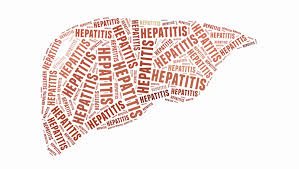India to achieve a hepatitis-free status by 2030
September 03, 2018 | Monday | News
“PMJAY is not possible without the engagement of the private sector. We need to create a pipeline of specialists and private sector can help in filling that gap”
Union Health & Family Welfare Minister J P Nadda said that the government was keen to formalise a multi-stakeholder forum to arrive at policy decisions and formulate implementable strategies to make healthcare affordable and accessible to all. He was addressing FICCI HEAL 2018 with the theme 'Healthcare at Crossroads', jointly organised by FICCI and NITI Aayog.
"There is no formal structure for policy interaction and very soon we will have a forum where multi-stakeholders will join hands with the government for policy decisions and program implementation plans," he said and added that such synergies would be important to achieve a hepatitis-free India by 2030.
The Minister added that Ayushman Bharat (Pradhan Mantri Jan Arogya Yojna) looks at health holistically with twin pillars of Health and Wellness Centres for comprehensive Primary health Care and financial protection for secondary and tertiary care hospitalisation.
Dr. V K Paul, Member (Health), NITI Aayog, Government of India said that as course correction in healthcare takes place, quality and ethics will be the guiding force. He urged the private sector to engage with the government in providing quality care at reasonable rates, monitored by the government. He said, "PMJAY is not possible without the engagement of the private sector. We need to create a pipeline of specialists and private sector can help in filling that gap."
Sangita Reddy, Vice President, FICCI and Joint MD, Apollo Hospitals Enterprise Ltd. said, "India is no longer at crossroads with the launch of Ayushman Bharat. Healthcare has entered the Universal Collective Super Highway."
Setting theme of the conference, Brig. Dr Arvind Lal, Chair, FICCI Health Services Committee and CMD, Dr Lal PathLabs said that in order to ensure appropriate costs for procedures covered under the Pradhan Mantri Jan Arogya Abhiyaan, while maintaining the quality of services, it is important to derive rational and sustainable package rates. "There is a strong need to understand costs from the perspective of all relevant stakeholders, the government, the providers and the consumer."
Prof. (Dr.) Dinesh Bhugra, CBE, President, British Medical Association said, "There is need to shift the focus from secondary healthcare and hospitals to primary care. There is also a need to change the way we train the next generation of doctors and medical students."
The Health Minister also released the 'FICCI Code of Ethics for the Health Services Industry. A FICCI White Paper 'Demystifying Healthcare Costs', was also released during the session.
A major concern that the healthcare sector is facing today is the rising trust deficit - between the private sector and the government as well as between the provider and the patient. FICCI recognises the need for transparency and accountability in the functioning of all healthcare establishments - whether private or public.
Hence, the FICCI Task Force on Accountability, along with the stakeholders from the government and industry, has developed the 'Code of Ethics for the health services industry', which encourages members to voluntarily and collectively commit to ethical professional conduct for patient care.
Already, 7 other Associations, with more than 30,000 institutional and individual members and more than 15 healthcare organizations from across India, have endorsed the FICCI Code of Ethics.









